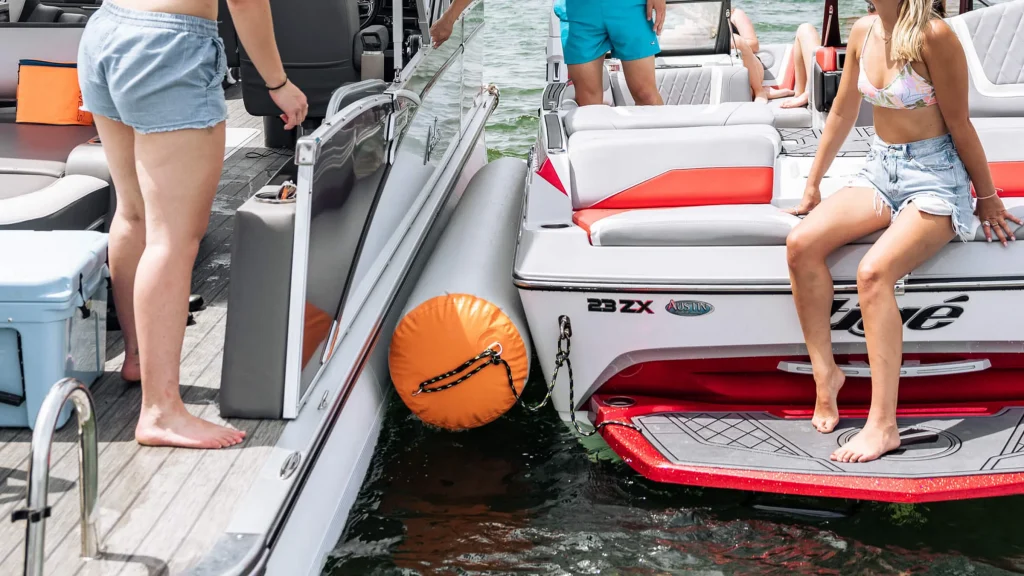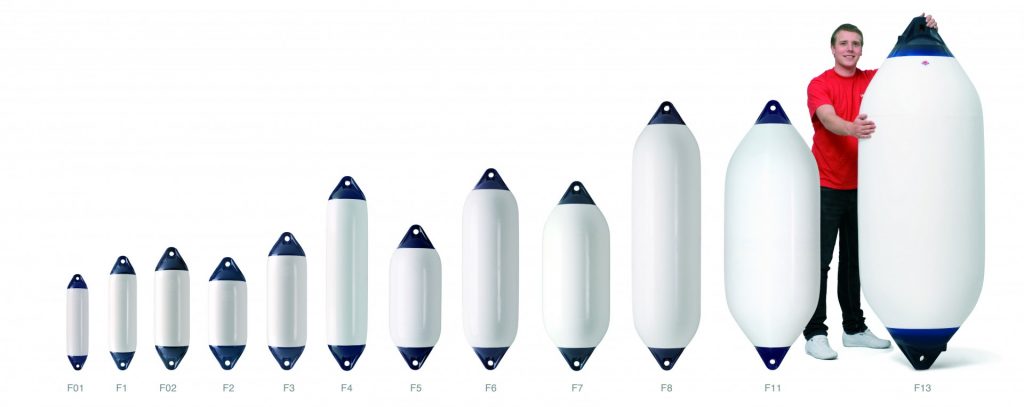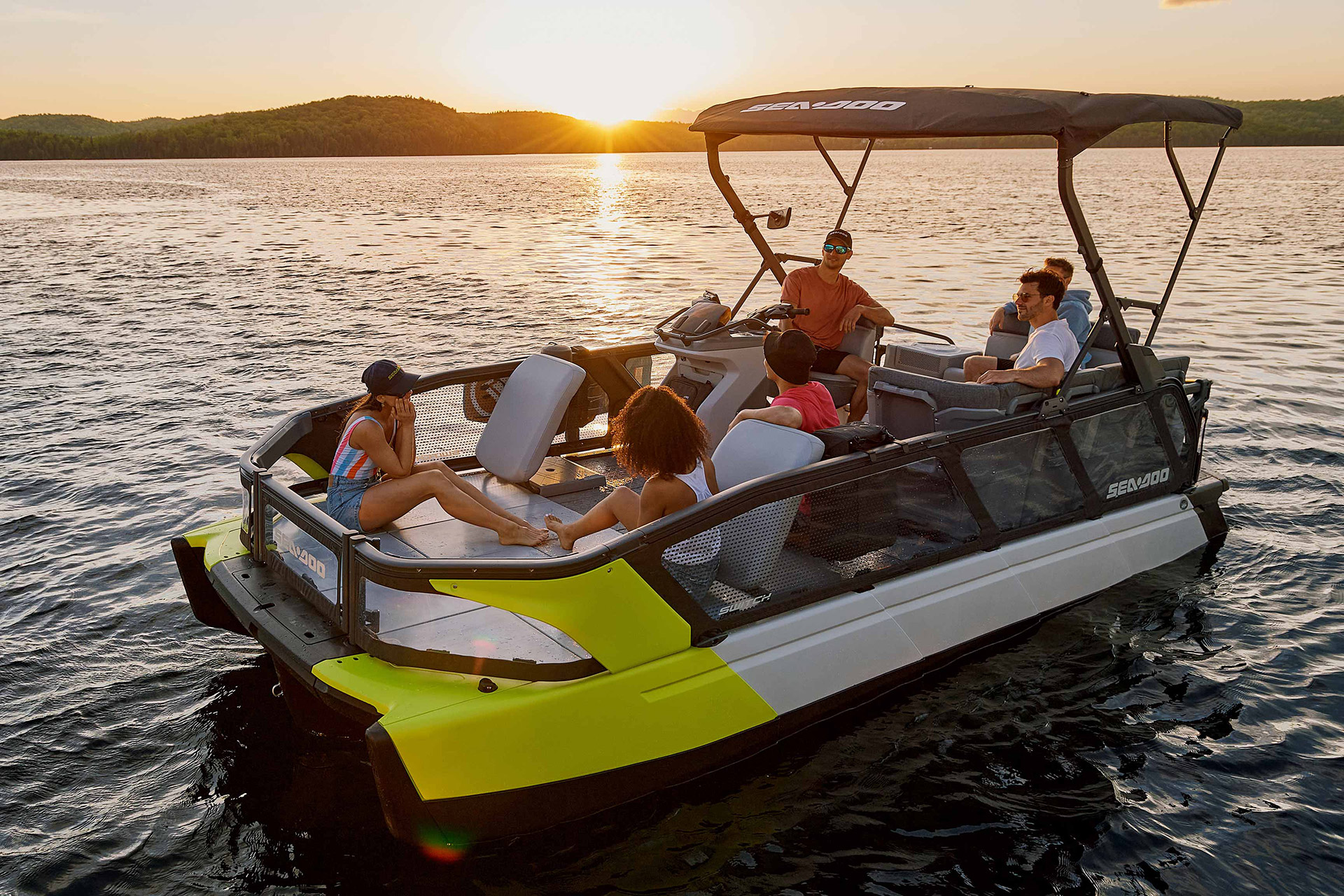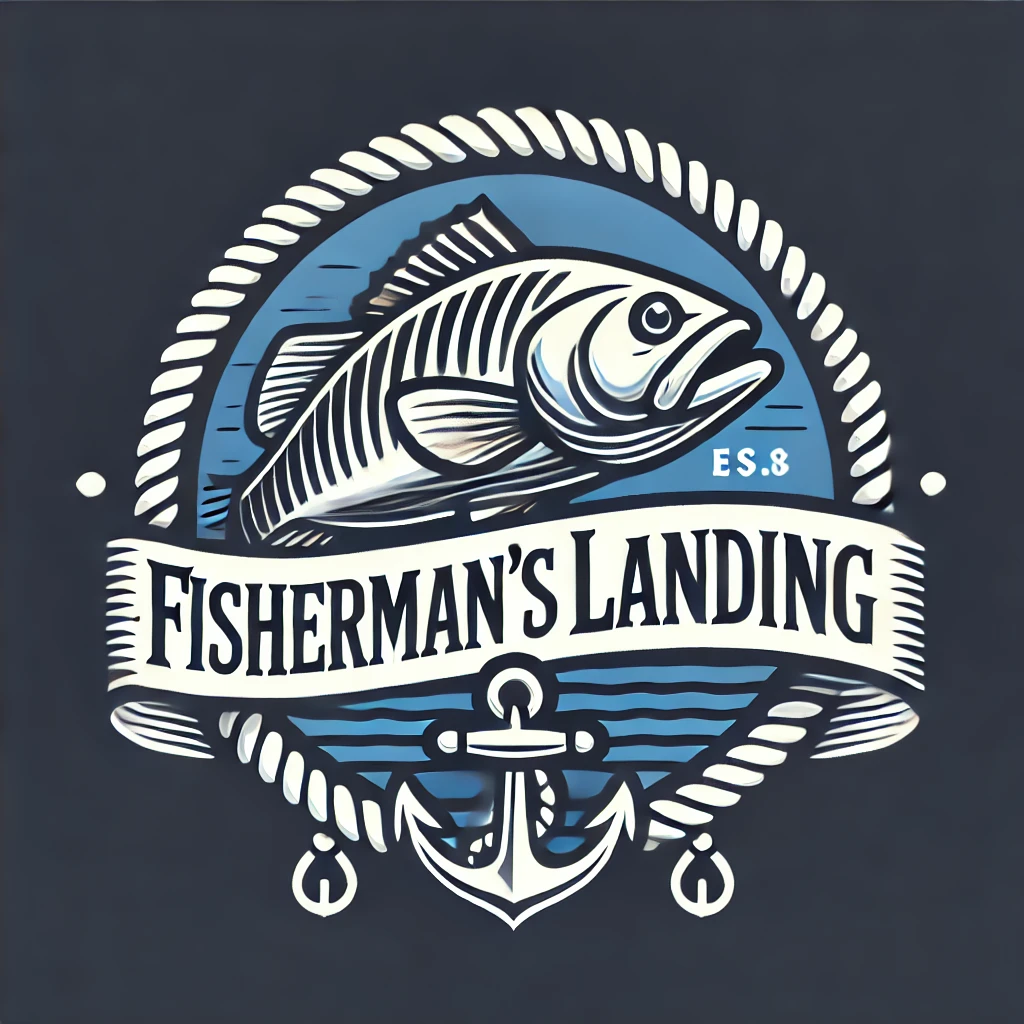Boat Fenders -2024: Essential Guide for Proper Protection and Maintenance
Boat fenders are an essential component of any watercraft, providing protection against collisions with docks, other boats, and other hazards in the water.
In 2024, boat fenders have continued to evolve and improve, with a wide variety of options available to suit any type of vessel and boater preference.

From the traditional cylindrical fender to specialized inflatable and foam fenders, there are a range of options to choose from.
Understanding Boat Fenders is crucial to making an informed decision about which type of fender to select for your vessel.
Factors such as boat size, weight, and docking conditions all play a role in determining the appropriate fender type and size.

Proper Selection and Usage of boat fenders is also important to ensure maximum protection and longevity.
Regular Maintenance and Care of fenders can help extend their lifespan and maintain their effectiveness.
Fender Accessories and Enhancements can also be used to customize and improve the performance of fenders.

Key Takeaways
- Boat fenders are an essential component of any watercraft and have continued to evolve and improve in 2024.
- Understanding Boat Fenders is crucial to selecting the appropriate fender type and size for your vessel.
- Proper Selection and Usage, Maintenance and Care, and Fender Accessories and Enhancements are all important considerations when using boat fenders.
Understanding Boat Fenders
Boat fenders are an essential piece of equipment for any vessel. They are designed to protect the hull of the boat from damage when it comes into contact with other boats, docks, or other objects.
In this section, we will discuss the different types of boat fenders, materials and durability, sizing and fit for vessels.
Types of Boat Fenders
There are several types of boat fenders available on the market, each with its own unique features and benefits. The most common types of boat fenders include:
- Cylindrical fenders: These are the most common type of boat fenders. They are designed to be hung vertically from the side of the boat and are available in a range of sizes.
- Round fenders: These are similar to cylindrical fenders, but are round in shape. They are designed to be hung horizontally from the side of the boat.
- Inflatable fenders: These are made of PVC or vinyl and can be easily inflated with air. They are lightweight and easy to store, making them a popular choice for smaller vessels.
- Flat fenders: These are designed to be placed against the hull of the boat, providing protection from scratches and dents. They are typically made of rubber or foam.

Materials and Durability
Boat fenders can be made from a variety of materials, including rubber, foam, PVC, and vinyl. The durability of a boat fender will depend on the material it is made from, as well as the quality of the construction.
Rubber fenders are known for their durability and are a popular choice for larger vessels.
Foam fenders are lightweight and easy to store, but may not be as durable as rubber fenders.
PVC and vinyl fenders are also lightweight and easy to store, but may not be as durable as rubber or foam fenders.

Sizing and Fit for Vessels
When selecting a boat fender, it is important to choose the right size and fit for your vessel.
The size of the fender will depend on the size of your boat, as well as the conditions in which you will be boating.
A general rule of thumb is to use one inch of diameter for every four to five feet of boat length. For example, a 25-foot boat would require a fender with a diameter of six inches.
It is also important to consider the shape of your boat when selecting a fender.
Boats with a flatter hull may require a larger fender, while boats with a more rounded hull may require a smaller fender.
Selection and Usage
Choosing the Right Fenders
When selecting boat fenders, it is essential to consider the size and type of the vessel.
For smaller boats, cylindrical fenders may be suitable, while larger vessels may require flat or round fenders for optimal protection.
The best boat fenders are those that provide adequate cushioning and protection against potential impacts during berthing, mooring, and docking.
Additionally, the material and inflation valve of the fenders should be durable and reliable for long-term use.
Installation and Attachment
Proper installation and attachment of boat fenders are crucial to ensure effective protection.
It is recommended to use high-quality lines or ropes for securing the fenders to the boat. This helps in preventing unnecessary movement and ensures that the fenders are optimally positioned to absorb impact.
Regular inspection of the installation and attachment is necessary to maintain the fenders' functionality.
Fender Positioning and Adjustment
The positioning of boat fenders plays a significant role in safeguarding the vessel.
Fenders should be strategically placed to align with potential contact points and adequately spaced to cover vulnerable areas.
Additionally, periodic adjustment of the fenders is necessary to accommodate changes in water conditions and boat size.
This ensures that the fenders continue to provide reliable protection throughout different mooring and docking scenarios.
Maintenance and Care
Boat fenders are an essential part of boat ownership, and proper maintenance and care are critical to ensure they last a long time. Here are some tips to keep your boat fenders in top condition.
Cleaning Practices
Keeping your boat fenders clean is essential to prevent any damage to the boat's hull.
It is recommended to clean the fenders after every use. The best way to clean the fenders is to use a mild soap and water solution.
For stubborn stains, you can use acetone, but be careful not to use too much as it can damage the fender's surface.
Storage Solutions
Proper storage of boat fenders is essential to prevent any damage to the fender's surface.
When storing the fenders, make sure they are clean and dry. It is recommended to store the fenders in a cool, dry place away from direct sunlight.
You can also use fender covers to protect the fenders from any damage.
Repair and Inflation
Regularly inspecting the fenders for any damage is essential.
If you notice any punctures or tears, it is recommended to repair them as soon as possible.
You can use a fender repair kit to fix any damage.
Inflating the fenders to the recommended pressure is also essential to ensure they provide adequate protection to the boat.
Always use the correct inflating needle to prevent any damage to the valve.
Fender Accessories and Enhancements
Boat fenders are an essential tool in protecting boats from damage and scratches. However, to ensure their longevity and effectiveness, it is important to use fender accessories and enhancements.
These accessories and enhancements can help protect the fenders themselves, make them easier to use, and enhance their performance.
Protective Covers and Racks
Protective covers and racks are great fender accessories that can help extend the life of the fenders.
Covers can protect the fenders from the elements, such as sun, salt, and water, while racks can keep them organized and easy to access.
Some covers and racks are specifically designed for certain fender sizes, such as cylindrical or round, while others can be adjusted to fit different sizes.
Inflation Tools and Valves
Inflation tools and valves are essential fender accessories that allow for easy and efficient inflation of the fenders.
Hand pumps and compressors can be used to inflate the fenders to the desired pressure, while valves can be used to control the amount of air in the fenders.
Some fender accessories even come with built-in valves and inflation tools, making it easier to inflate and adjust the fenders.
Ropes and Straps
Ropes and straps are important fender accessories that can help secure the fenders in place.
Four ropes are typically used to secure a fender to a boat, with two ropes attached to the top and two to the bottom.
Straps can also be used to secure the fenders to the boat, and some even come with height adjusters to ensure the fenders are at the correct height to protect the boat.
Specialized Fenders and Applications
Unique Fender Styles
Boat fenders come in a variety of styles to suit different types of boats and mooring conditions.
For example, cylindrical fenders are the most popular type of fender and are suitable for most boats. However, for boats with unusual hull shapes, such as sailboats, spherical fenders may be more appropriate.
In addition, there are specialized fenders designed for specific applications, such as bow fenders, which are designed to protect the bow of the boat during docking.
Other specialized fenders include transom fenders, which protect the transom of the boat, and corner fenders, which protect the corners of the boat.
Fenders for Specific Mooring Conditions
Mooring conditions can vary widely depending on the location and type of mooring.
For example, boats moored in areas with high tidal ranges may require larger fenders to protect against the increased forces exerted on the boat during tidal changes.
Boats moored in areas with strong currents may require fenders with increased abrasion resistance to protect against damage from rubbing against the mooring buoy or other boats.
Environmental Considerations
Environmental considerations are becoming increasingly important when choosing boat fenders.
Many marinas and harbors now have regulations in place to ensure that boats use environmentally friendly fenders.
One option is to use fenders made from recycled materials, such as recycled plastic bottles.
Another option is to use fenders made from natural materials, such as hemp or cotton.
These materials are biodegradable and do not release harmful chemicals into the water.
Advanced Topics in Fendering
Custom Fender Solutions
While off-the-shelf fender solutions are suitable for most boats, some boats require custom fender solutions. For example, boats with unique hull shapes or sizes may require custom fenders to provide adequate protection.
Custom fender solutions can be made from a variety of materials, including foam, rubber, and plastic. Polyform G Series fenders, for example, are a popular choice for custom fender solutions because they are durable and can be customized to fit any boat.
Impact on Hull Integrity
Fenders are designed to protect boats from damage, but they can also cause damage if not used properly.
Improperly placed fenders can cause hull damage, especially in rough seas. To prevent hull damage, fenders should be placed at the right height and distance from the boat's hull.
The diameter of the fender should also be appropriate for the boat's size and weight. It is important to note that fenders should not be relied upon to prevent hull damage in all situations.
Longevity and Value
Fenders are an investment in the longevity of a boat. While some fenders are more expensive than others, it is important to consider the long-term value of the investment.
Fenders that are made from high-quality materials and are properly maintained can last for many years.
On the other hand, fenders that are not properly maintained can deteriorate quickly and may need to be replaced frequently.
When considering the value of a fender, it is important to consider the cost of replacement and the impact of hull damage on the boat's overall value.
Frequently Asked Questions
How do you choose the right size of fenders for your boat?
Choosing the right size of fenders for your boat is crucial for optimal protection.
A good rule of thumb is to choose a fender diameter based on the size of your boat. For the classic cylindrical fender, an inch of diameter for every 4-5 feet of boat length is recommended.
For ball-style fenders, which are typically used on larger or commercial vessels, a larger size may be necessary. When in doubt, it is always better to choose a slightly larger size than a smaller one to ensure maximum protection.
What are the best materials for durable boat fenders?
Boat fenders can be made from a variety of materials, including vinyl, rubber, and foam.
Vinyl fenders are popular due to their durability and resistance to UV rays and punctures. Rubber fenders are also durable and provide excellent protection against impact.
Meanwhile, foam fenders are lightweight and easy to handle, making them ideal for smaller boats. Ultimately, the best material for your boat fenders depends on your specific needs and preferences.
How often should boat fenders be replaced for optimal protection?
Boat fenders should be replaced periodically to ensure optimal protection.
The frequency of replacement depends on several factors, including the material of the fender, the frequency of use, and the conditions in which they are used.
A general rule of thumb is to replace boat fenders every three to five years or sooner if they show signs of wear and tear.
What are the advantages of using inflatable fenders over traditional ones?
Inflatable fenders offer several advantages over traditional ones.
They are lightweight, easy to store, and can be quickly inflated when needed. Additionally, they can be adjusted to different levels of firmness, providing greater flexibility in terms of protection.
However, they are more prone to punctures and may require more maintenance than traditional fenders.
How can you properly maintain and clean your boat fenders?
Proper maintenance and cleaning are essential for ensuring the longevity and effectiveness of your boat fenders.
To clean your fenders, use a mild soap and water solution and a soft-bristled brush. Avoid using harsh chemicals or abrasive materials, as these can damage the surface of the fender.
To maintain your fenders, inspect them regularly for signs of wear and tear, and replace them as needed.
What are the key differences between cylindrical and spherical boat fenders?
Cylindrical and spherical boat fenders are two of the most common types of fenders used on boats.
Cylindrical fenders are typically longer and narrower, while spherical fenders are rounder and wider.
Cylindrical fenders are best suited for boats with flat or straight sides, while spherical fenders are ideal for boats with curved or irregularly shaped hulls.
The choice between cylindrical and spherical fenders depends on the specific needs of your boat.
Charlie is Editor-in-Chief of Sea Magazine







